Buying a home in the UAE may seem hard when you don’t earn a high salary, but it is not impossible. With the right steps, support, and knowledge on how to buy a home with low income, you can still achieve your dream of owning a home.
In this guide, you’ll learn how to do that, so let’s walk through your options.
- Home buying eligibility in the UAE
- Mortgage and finance options
- Other costs to budget for
- Working with banks vs mortgage brokers
- Mortgage application steps
- Government housing support (for UAE nationals only)
- Other ways to buy on a budget
- Documentation and timeline
- Key takeaways
- FAQs
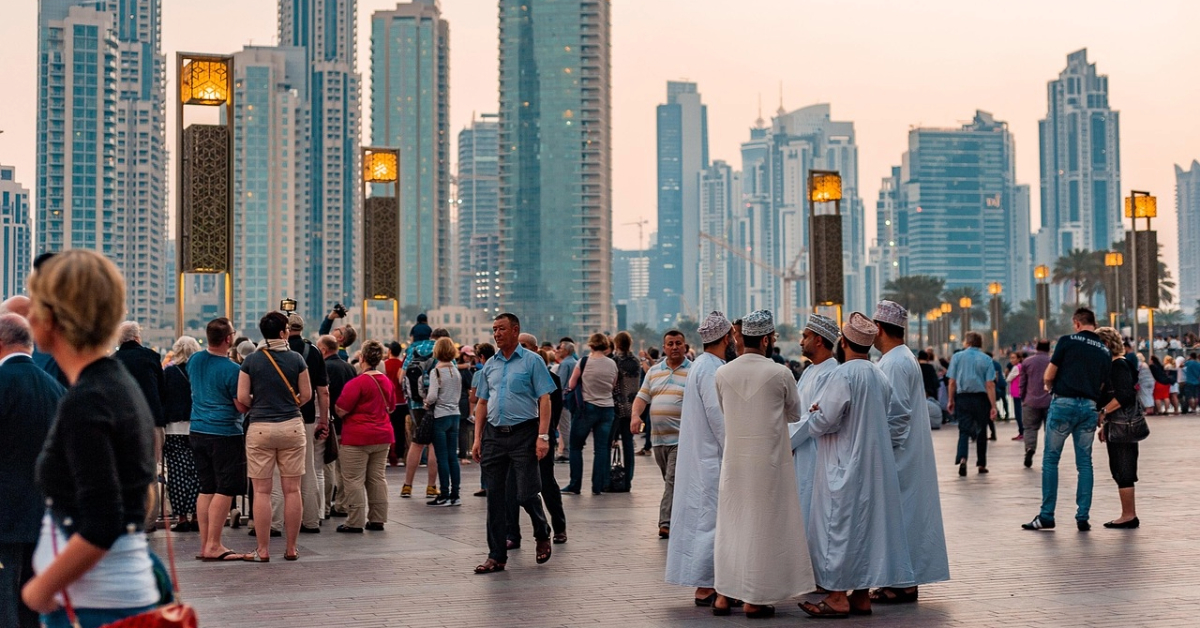
Home buying eligibility in the UAE
The UAE has specific rules about who can buy property and where. These rules depend on your nationality and which emirate you want to buy in.
- UAE citizen: You can buy land and property across the country.
- Foreign national or expat: You can only buy in certain areas called freehold zones, which are set by each emirate’s government.
There are more than 70 freehold areas in Dubai. Popular freehold areas include JVC, Dubai Marina, Business Bay, and Downtown.
In Abu Dhabi, you can buy on Yas Island, Reem Island, Sadiyaat Island, Al Reef, Maryah Island, and a few others. Other emirates, like Sharjah and Ras Al Khaimah, also offer freehold zones for expats.
Before you start your search, make sure the property is in a zone where you’re allowed to buy, as this is the first and most crucial step.
Explore the Available Apartments for Sale in Dubai
-

Apartment
Listed 3 days ago
4,400,000 AED
Furnished 2BR | Full Burj View | Corner Unit
Act Two, Act Towers, Opera District, Downtown Dubai, Dubai
2
2
1,325 sqft
-
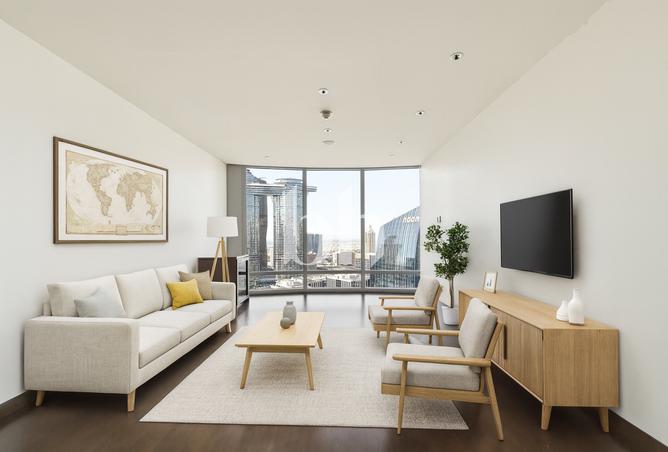
Apartment
Listed 2 weeks ago
4,700,000 AED
Best Priced Type B | Boulevard View | Study
Burj Khalifa, Burj Khalifa Area, Downtown Dubai, Dubai
2
3
1,639 sqft
-
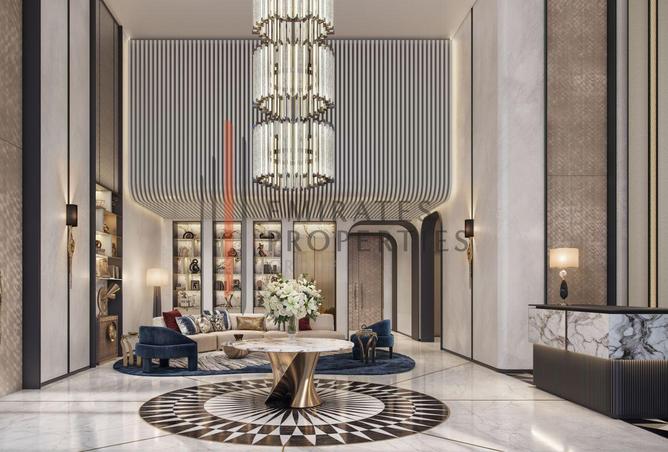
Apartment
Listed 1 week ago
8,996,792 AED
Investment | Luxurious 3 Bed Apartment in Downtown
Sofitel Residences Downtown, Burj Khalifa Area, Downtown Dubai, Dubai
3
5
3,571 sqft
-
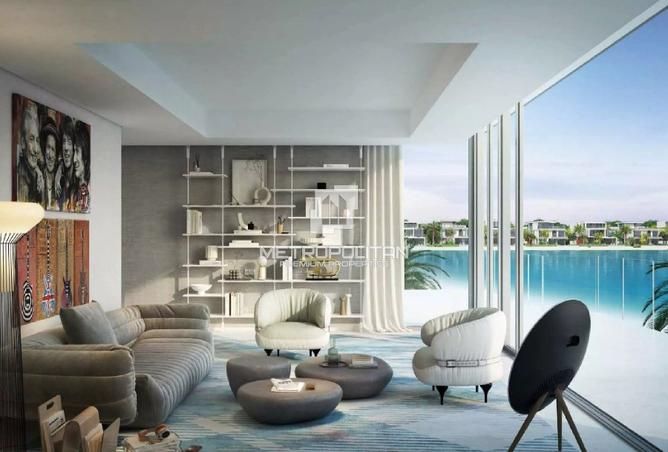
Villa
Listed 1 day ago
21,390,000 AED
High Number | Sunset View | Multiple Options
Palm Jebel Ali - Frond C, Palm Jebel Ali, Dubai
6
7
7,570 sqft
-
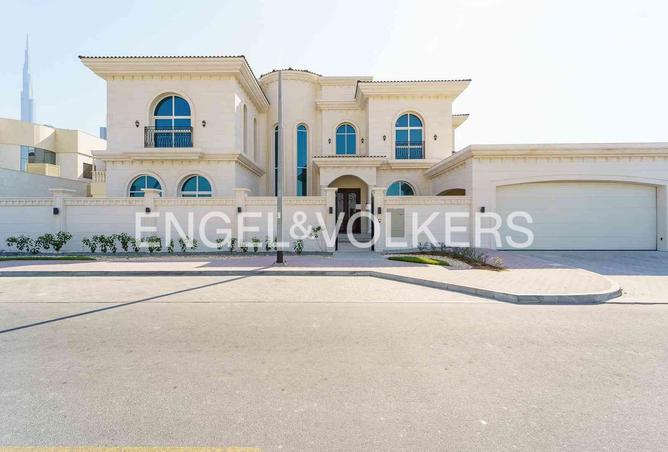
Villa
Listed 1 day ago
63,000,000 AED
Brand New Luxury Villa | Spacious and Elegant
Al Wasl Villas, Al Wasl Road, Al Wasl, Dubai
7
7
10,703 sqft
-
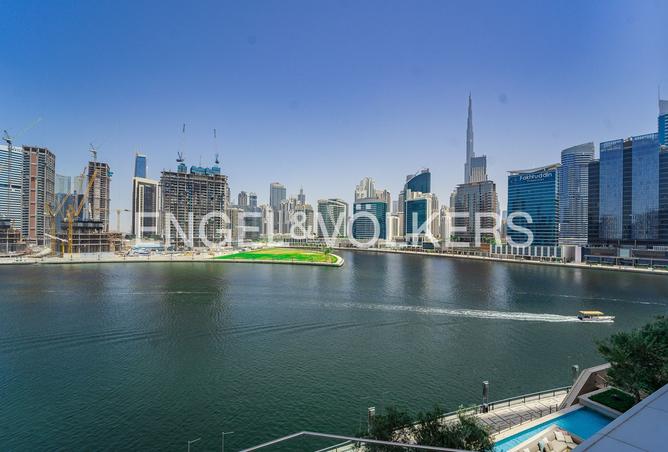
Apartment
Listed 1 day ago
22,999,999 AED
Luxurious | Half-Floor | Canal Views
Volante, Business Bay, Dubai
2
3
5,043 sqft
-
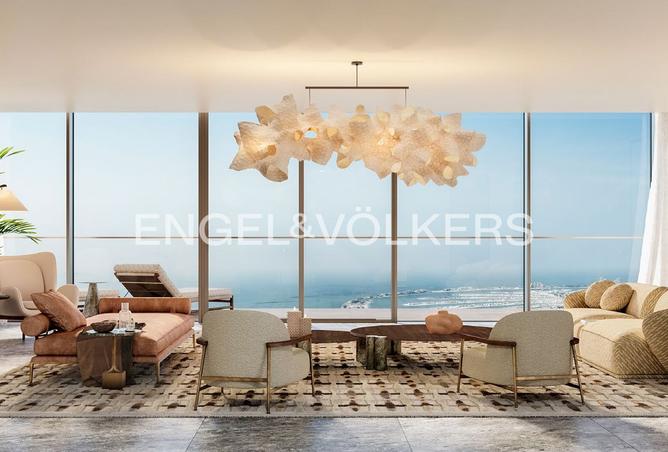
Apartment
Listed 1 day ago
10,814,000 AED
Dubai Marina | Apartment | Prime Location
Six Senses Residences, Dubai Marina, Dubai
4
5
3,318 sqft
-
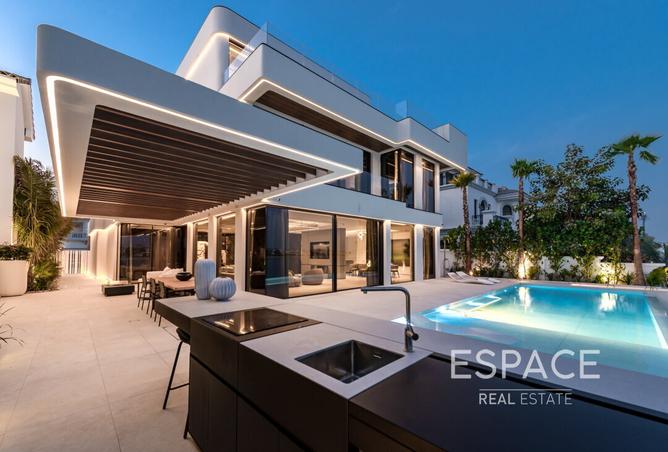
Villa
Listed 1 day ago
75,000,000 AED
Luxuriously Upgraded | 3-Story |Furnished
Garden Homes Frond D, Garden Homes, Palm Jumeirah, Dubai
6
7
7,338 sqft
-
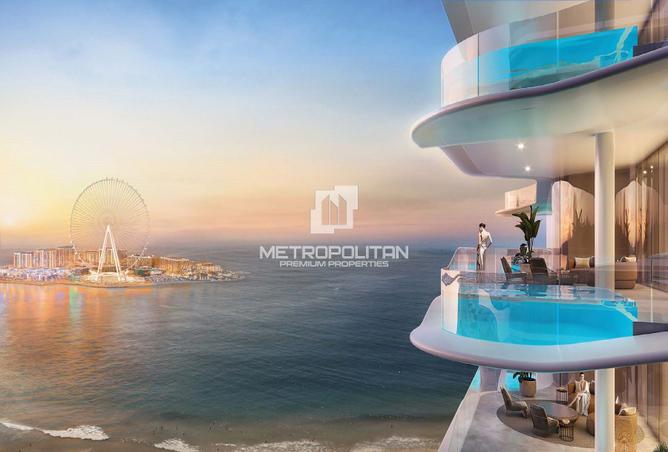
Apartment
Listed 1 day ago
22,900,000 AED
Furnished | With Plunge Pool | Ultra Luxury
sensoria at Five Luxe, Jumeirah Beach Residence, Dubai
4
5
4,019 sqft
-
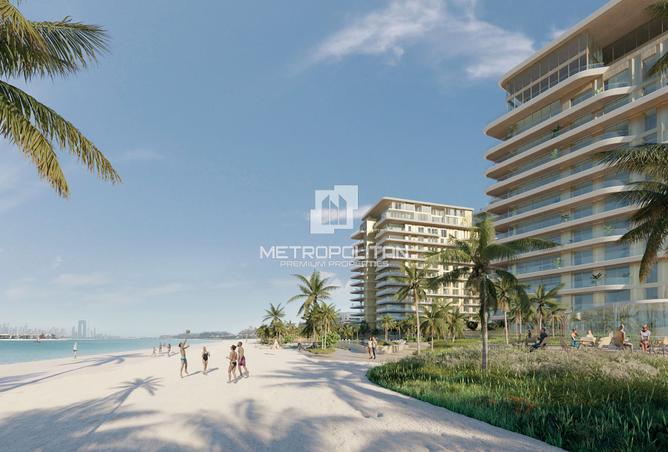
Penthouse
Listed 1 day ago
28,500,000 AED
Palm and Beach Views | Half Floor Penthouse
Serenia Living Tower 3, Serenia Living, Palm Jumeirah, Dubai
3
4
5,981 sqft
Mortgage and finance options
When it comes to mortgage and finance options, there’s a lot to choose from. Fixed-rate loans, Islamic financing, and flexible repayment plans all have their perks. The key is finding what fits your lifestyle, budget, and long-term goals before you commit.
Types of mortgages available
If you don’t have enough cash to buy a home outright, don’t worry. Most buyers in the UAE take a mortgage from a bank or lender.
You can choose from different types of home loans, based on how the loan works and whether it follows Islamic law.
Conventional mortgages
These are interest-based loans. You borrow money and pay it back with interest over time. Banks may offer:
- Fixed-rate loans: Your interest rate stays the same for a set time.
- Variable-rate loans: The rate can change based on market trends.
Islamic mortgages
These follow Sharia law, which means no interest is charged. Instead, the bank buys the home and sells it to you with a profit. Common options include:
- Murhaba: You agree to buy the home from the bank at a marked-up price, paid in instalments
- Ijara: The bank owns the home and rents it to you until you pay it off
Other options
You will also find:
- Mortgages for non-residents
- Buy-to-let loans
- First-time home buyer plans
Each bank has its own rules, so it’s essential to compare your options.
If you already have a home loan and want to get a second mortgage in Dubai, you have to double-check the legal side as well to avoid any inconvenience.
Can you get a mortgage on low income?
Yes, you can. But there are some rules that you should follow. Different banks and lenders have their own rules about income and how much risk they’re willing to take (ie, how much you can borrow). Most banks in the UAE require you to:
- Earn a stable monthly income (usually AED 10,000 minimum).
- Show at least 6 months of salary history.
- Keep your debt burden ratio (DBR) under 50%. That means no more than 50% of your income can go to debts, including your new mortgage.
You can usually borrow up to 7 times your yearly income if you’re an expat, or 8 times if you’re a UAE national. Your age and credit score also matter.
Loan terms and repayment rules
Banks offer mortgages with terms of up to 25 years. Expats must finish repayment by age 65, and UAE citizens by 70.
If your mortgage goes beyond retirement age, the bank will check your future income to make sure you can still pay.
How much down payment do you need?
According to UAE laws:
- Expats must pay at least 20% of the property price as a down payment for homes under AED 5 million.
- UAE nationals must pay at least 15%.
The down payment is higher for more expensive homes. You also need to pay fees for registration, valuation, and agents. So try to save around 25–30% of the home value before you apply.
Non-residents can also apply, but they’ll need a minimum of 40% as a down payment.
What is the maximum amount that you can borrow?
The maximum amount that you can borrow depends on your nationality and property type:
- UAE citizens: You can borrow up to 85% of the property price if it’s under AED 5 million. For more expensive homes, it drops to 75%.
- Expats: You can borrow up to 80% for homes under AED 5 million, and 70% for homes above that.
- Off-plan homes: Banks only lend up to 50%, no matter the value of the unit or your nationality.
Other costs to consider
There is no income or property tax in the UAE, but buying a home still comes with extra costs you should plan for.
- Property transfer fee: In Dubai, it’s 4% of the purchase price. In Abu Dhabi, it’s usually 2%. This is paid when you register the home.
- Broker’s commission: Most agents charge 2% of the property price, plus 5% VAT on their fee.
- VAT: A 5% VAT applies to services like brokerage, legal help, and valuation. It also applies to off-plan homes but not resale properties.
- Municipality or housing fees: These are billed monthly and help cover local services. They vary by emirate and property type.
- Annual service charges: These cover maintenance of shared spaces, facilities, and security. The cost depends on the building or community.
- NOC or admin fees: Some developers charge for No Objection Certificates or admin work. These can range from AED 500 to AED 1,500 or more.
- Mortgage insurance: Some lenders require this insurance to protect against loan default. Costs vary but typically add 0.1% to 0.5% of the loan amount annually.
Make sure to factor these into your budget before you buy, as they can typically add up to 8% of the total property cost or more.
Working with banks vs mortgage brokers
You can go directly to a bank or work with a mortgage broker.
- Banks offer standard products and interest rates.
- Brokers can compare offers from many banks and help you find better deals.
A broker can guide you toward more flexible banks if your income is low. They can also explain each step of the process. Make sure your broker is licensed and transparent about fees.
Mortgage application steps
Here’s a simple path to follow:
- Get pre-approved by a bank or broker.
- Choose your property. Make sure it’s approved for mortgages.
- Submit documents like ID, salary slips, and bank statements.
- The bank checks the property and does a valuation.
- If approved, you get an offer letter with terms.
- You sign the contract and register the property with the Dubai Land Department.
- The bank transfers the money, and the home is yours.
The whole process may take 4–8 weeks.
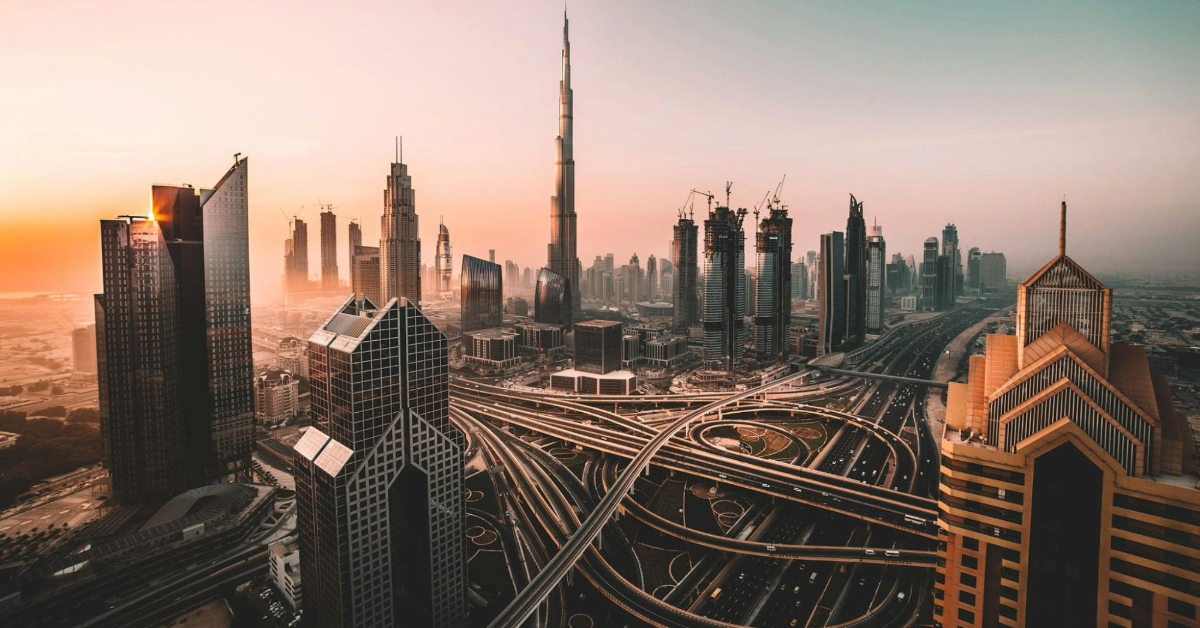
Government housing support (for UAE nationals only)
If you are a UAE citizen with a low income, you may get help from the government.
1. SUKNA – the National Housing Support Fund
This fund was created in 2025 and the Ministry of Energy and Infrastructure is managing the process. It supports Emiratis with housing loans and grants, helping them pay off debts or overdue rent.
You may qualify if:
- You’ve never owned a home before.
- Your income is under a certain level.
- You meet other government rules.
2. SZHP – Sheikh Zayed Housing Program
This programme was established in 1999. It offers:
- Interest-free housing loans
- Grants to build or renovate homes
- Special support for urgent cases
In 2025, almost 3,000 families received housing support approvals.
3. Help for special cases
If you’re a widow, divorced woman, orphan, senior citizen, or person of determination, you may get extra help.
Additionally, the rules in Sharjah were recently updated. You no longer need a minimum number of children to apply for housing aid. Besides, if you’re eligible, apply early as these programmes take time to process.
Other ways to buy on a budget
If you don’t qualify for a mortgage or government support, don’t give up. There are still ways to own a home.
1. Explore affordable housing projects
Some developers offer low-cost homes aimed at first-time or lower-income buyers. These may be smaller units in upcoming areas.
In Dubai, look out for:
- Units under AED 500,000
- Projects with long payment plans
- Properties by trusted, affordable developers
Discover: Top 5 Home Buying Mistakes You Must Avoid
2. Buy off-plan properties
These are homes that are still under construction. They usually have lower prices and easy payment plans. However, you need to be careful and only buy from approved developers who follow escrow rules.
Some banks may not give a mortgage until the project is almost finished.
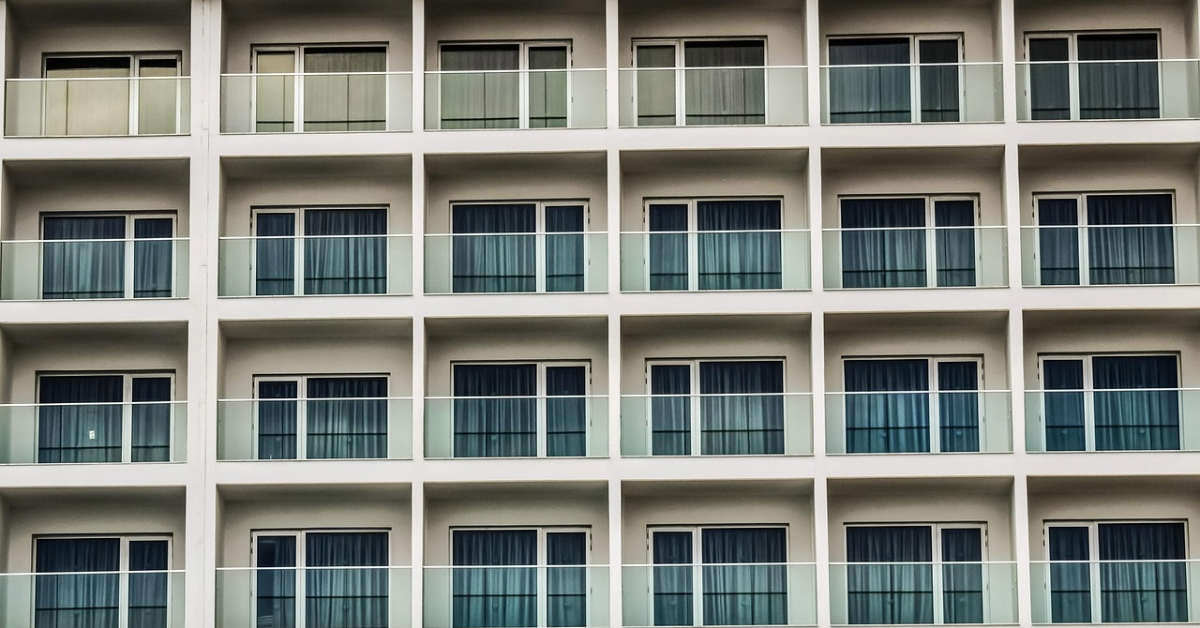
Explore the Available Off-plan projects in Dubai
-
Rosehill by Emaar
Dubai, Dubai Hills Estate, Rosehill
1, 2 and 3 bedrooms
From: AED 1,603,888 Down payment: 10%
Altan
Dubai, Dubai Creek Harbour (The Lagoons), Altan
1, 2 and 3 bedrooms
From: AED 1,813,888 Down payment: 10%
Terra Gardens
Dubai, Expo City, Terra Gardens
1 and 2 bedrooms
From: AED 1,550,000 Down payment: 10%
Lyvia by Palace
Dubai, Dubai Creek Harbour (The Lagoons), Lyvia by Palace
1, 2 and 3 bedrooms
From: AED 1,980,000 Down payment: 10%
The Alba Residences Dorchester Collection
Dubai, Palm Jumeirah, THE Alba Residences by Omniyat
3 and 4 bedrooms
From: AED 44,000,000 Down payment: 5%
Avarra by Palace
Dubai, Business Bay, Avarra by Palace
1, 2, 3, 4 and 6 bedrooms
From: AED 2,704,888 Down payment: 10%
Ovelle
Dubai, The Valley, Ovelle
4 and 5 bedrooms
From: AED 7,090,000 Down payment: 10%
Soulever
Dubai, Maritime City, Soulever by Beyond
1, 2, 3, 4 and 5 bedrooms
From: AED 2,530,000
Aurea
Dubai, Mina Rashid, Aurea
1, 2 and 3 bedrooms
From: AED 2,310,000 Down payment: 10%
Selvara Phase 2 By Emaar
Dubai, Dubai Investment Park (DIP), Grand Polo Club and Resort, Selvara 2
4 bedrooms
From: AED 6,220,000 Down payment: 10%
Get a smaller home
You don’t need to buy a villa to own a home; you can start small with a studio or a 1-bedroom apartment, which costs much less. Later, you can upgrade or rent them out.
3. Try rent-to-own or lease-to-own
Some developers offer rent-to-own options. You pay monthly rent that counts towards owning the home.
These are still rare but growing in Dubai.
4. Share the cost with family
Buying with a parent, sibling, or spouse can help you qualify for a bigger loan. But make sure the ownership is clear and legal.
Explore: Can I Rent Out a Shared Ownership Property in Dubai?
Tips to boost your chances of approval
Here are ways to make your finances stronger:
1. Build your credit score
- Pay your bills and loans on time.
- Don’t max out your credit cards.
- Avoid bounced cheques or unpaid telecom bills.
This is an important step as lenders check your credit before giving a loan.
2. Save for the down payment
Try to put away money every month. Set a target and stick to it. You can also use:
- End-of-service benefits
- Yearly bonuses
- Gifts from family
Compare properties and loan offers.
Don’t take the first offer you see and shop around; this allows you to compare the following factors:
- Interest rates
- Loan terms
- Fees and charges
- Property service fees
A cheaper home in a good area is better than an expensive home in the wrong place.
Talk to experts
Work with:
- RERA-licensed real estate agents
- Registered mortgage brokers
- Lawyers who understand UAE property laws
They can protect your interests.
Documentation and timeline
Get your paperwork ready
Here’s what you’ll usually need:
- Passport and Emirates ID
- Residency visa (for expats)
- Salary certificate or business licence
- Last 6 months’ bank statements
- Credit report from AECB (Al Etihad Credit Bureau)
- Property documents from the seller or developer
If you’re applying for a government loan, you’ll also need:
- Family book (for citizens)
- Proof of income
- Housing status report
You should also double-check everything before submitting.
Know the legal steps and timeline
Once you agree on a price:
- Sign a Memorandum of Understanding (MOU).
- Pay a deposit (usually 10%).
- Complete valuation and bank checks.
- Pay transfer and registration fees.
- Register the sale at the Dubai Land Department or other relevant authority.
- Move in or wait for handover (if off-plan).
The full process may take 1 to 2 months, or longer if the home is off-plan.
Key takeaways
Buying a home in the UAE on a low income is possible with the right plan. You can explore affordable properties, apply for flexible mortgage options, or benefit from government housing support if you’re a UAE citizen. Start small, stay informed, and take smart steps like improving your credit score and saving for your down payment. With patience and guidance, homeownership can become a reality.
FAQs
What is the minimum income to qualify for a mortgage in the UAE?Most banks require a stable monthly income of at least AED 8,000 to AED 10,000.
Are there special housing programs for low-income families in the UAE?Yes, UAE nationals can apply for support through SUKNA and the Sheikh Zayed Housing Programme.
Can expatriates buy affordable homes with a low salary?Yes, expats can buy in freehold zones and explore off-plan or smaller units with flexible payment plans.
How much down payment is needed to buy a home with low income?Expats need at least 20% of the property price, and UAE citizens need at least 15%.
What documents are required to apply for government housing support?You’ll need ID, proof of income, a family book (for citizens), and details about your current housing.
-

Villa
Listed 8 hours ago
2,950,000 AED
Freehold - Super Deluxe Finishing - Close to Servi
Al Rawda 1, Al Rawda, Ajman
5
7
5,000 sqft
-
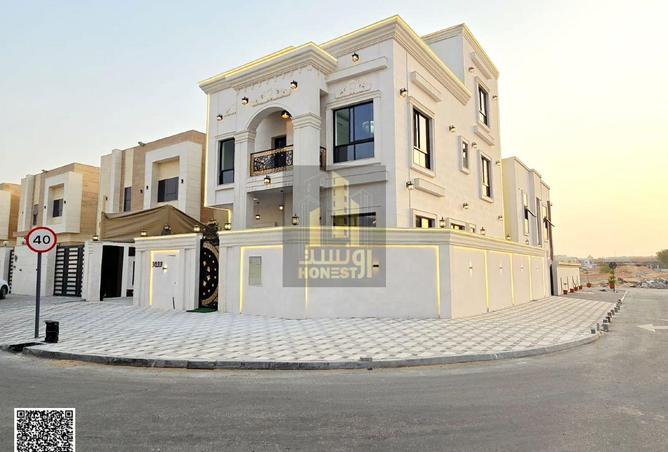
Villa
Listed 6 hours ago
1,950,000 AED
Experience true luxury Price includes registration
Al Helio 2, Al Helio, Ajman
7
7+
3,850 sqft
-

Villa
Listed 1 day ago
21,390,000 AED
High Number | Sunset View | Multiple Options
Palm Jebel Ali - Frond C, Palm Jebel Ali, Dubai
6
7
7,570 sqft
-

Villa
Listed 1 day ago
63,000,000 AED
Brand New Luxury Villa | Spacious and Elegant
Al Wasl Villas, Al Wasl Road, Al Wasl, Dubai
7
7
10,703 sqft
-

Apartment
Listed 1 day ago
22,999,999 AED
Luxurious | Half-Floor | Canal Views
Volante, Business Bay, Dubai
2
3
5,043 sqft
-

Apartment
Listed 1 day ago
10,814,000 AED
Dubai Marina | Apartment | Prime Location
Six Senses Residences, Dubai Marina, Dubai
4
5
3,318 sqft
-

Villa
Listed 1 day ago
75,000,000 AED
Luxuriously Upgraded | 3-Story |Furnished
Garden Homes Frond D, Garden Homes, Palm Jumeirah, Dubai
6
7
7,338 sqft
-

Apartment
Listed 1 day ago
22,900,000 AED
Furnished | With Plunge Pool | Ultra Luxury
sensoria at Five Luxe, Jumeirah Beach Residence, Dubai
4
5
4,019 sqft
-

Penthouse
Listed 1 day ago
28,500,000 AED
Palm and Beach Views | Half Floor Penthouse
Serenia Living Tower 3, Serenia Living, Palm Jumeirah, Dubai
3
4
5,981 sqft
-
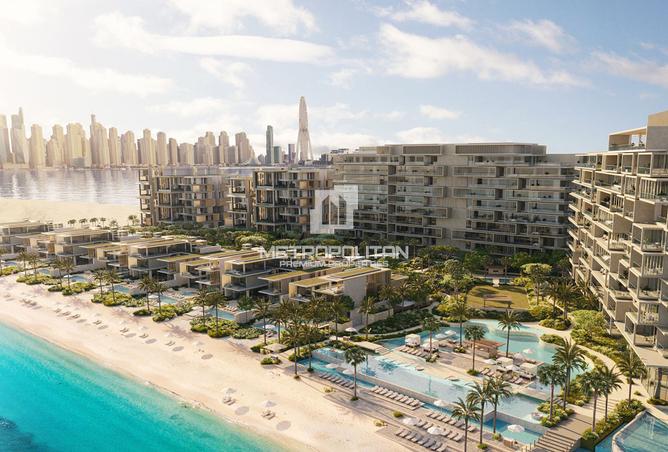
Apartment
Listed 1 day ago
29,000,000 AED
Full Palm and Ocean Views | Dual-Sided Penthouse
Six Senses Residences, Palm Jumeirah, Dubai
3
3
4,481 sqft
Share










